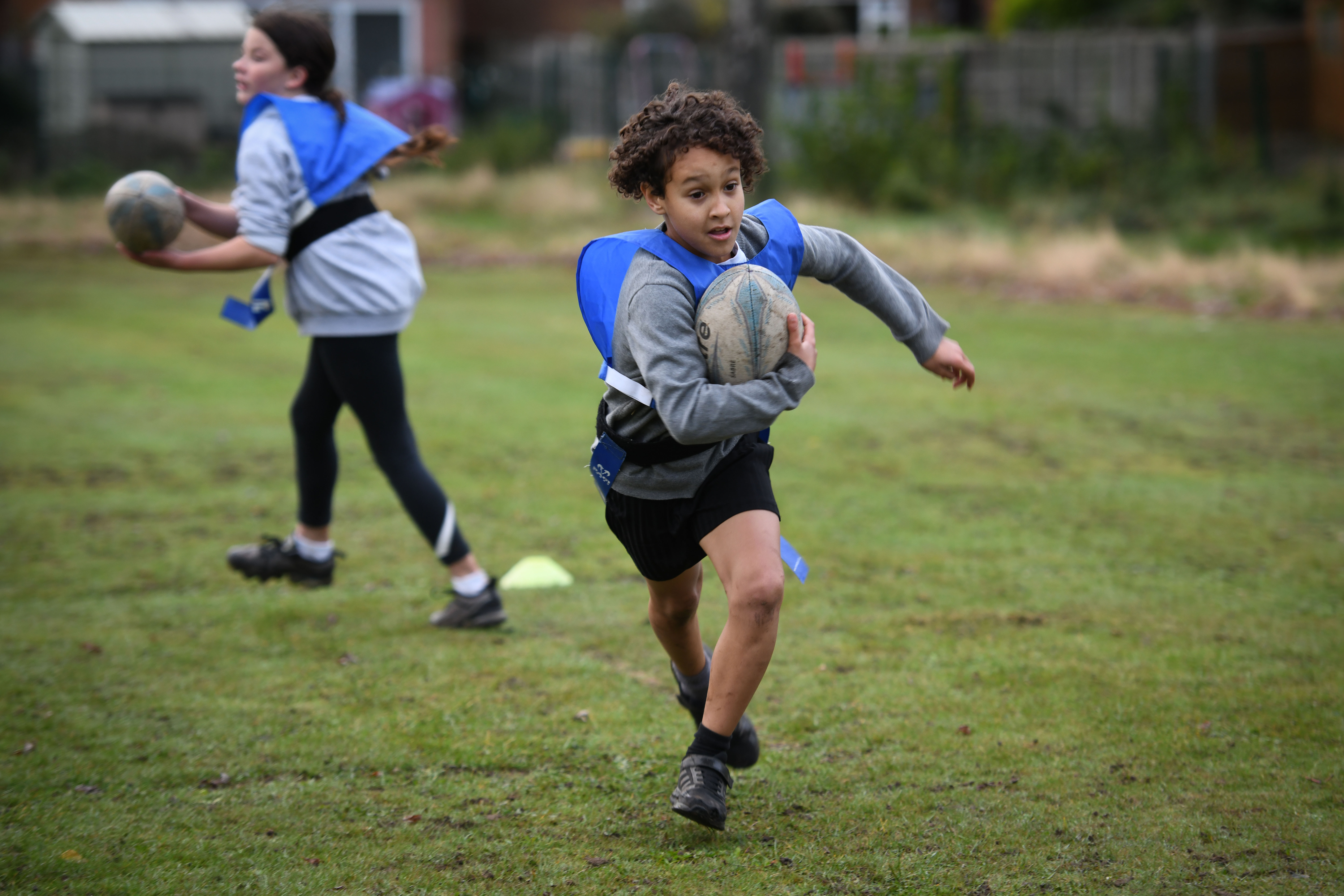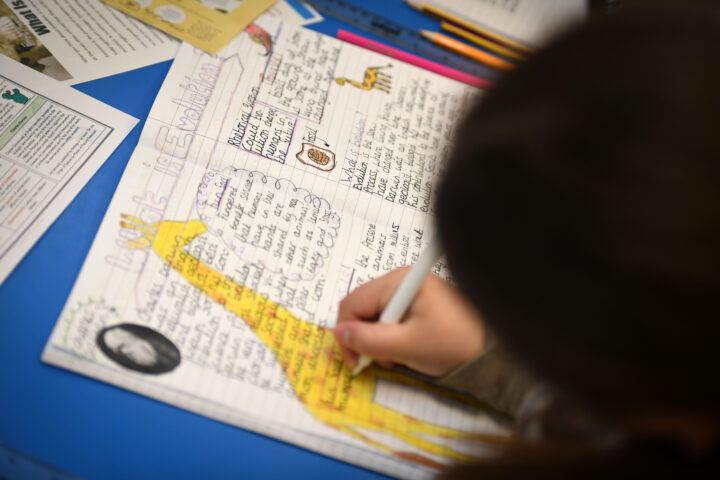Other Subjects

Non-Core Subjects

Curriculum Organisation
The specific aims of our curriculum are to: promote high standards in all individual subject disciplines; ensure every child is a fluent reader and develops a love of books; allow children to develop knowledge of themselves as learners; enable children to acquire knowledge and key skills across the curriculum; enable children to be confident in the use of technology in a range of subjects; promote spiritual development; promote physical and mental development and an awareness of the importance of a healthy lifestyle; enable children to be aware of the importance of and participate in the arts and related cultural themes; enable pupils to develop moral sensibility through carefully taught values; develop the personal and social skills of each child; prepare pupils well for transition and the opportunities, responsibilities and experience of adult life.
The national curriculum provides pupils with an introduction to the essential knowledge that they need to be educated citizens. It introduces pupils to the best that has been thought and said; and helps engender an appreciation of human creativity and achievement. The National Curriculum is just one element in the education of every child. There is time and space in the school day and in each week, term and year to range beyond the National Curriculum specifications. The National Curriculum provides an outline of core knowledge around which teachers can develop exciting and stimulating lessons to promote the development of pupils’ knowledge, understanding and skills as part of the wider school curriculum. Compulsory subjects in KS1 are English, Maths, Science, Art and design, Computing, Design and technology, Geography, History, Music and Physical Education. These are also compulsory in KS2 with the addition of Languages.
At Hill West, we have developed progressive schemes of work for every subject underpinned by the requirements of the National Curriculum and founded on strong teacher subject knowledge. All subjects are taught discretely each week (with the exception of DT, which is blocked) and teachers are alert to the necessity for interleaving the learning where and when possible.
Art and Design – Art, craft and design embody some of the highest forms of human creativity. A high-quality art and design education should engage, inspire and challenge pupils, equipping them with the knowledge and skills to experiment, invent and create their own works of art, craft and design. As pupils progress, they should be able to think critically and develop a more rigorous understanding of art and design. They should also know how art and design both reflect and shape our history, and contribute to the culture, creativity and wealth of our nation.
Computing – A high-quality computing education equips pupils to use computational thinking and creativity to understand and change the world. Computing has deep links with mathematics, science, and design and technology, and provides insights into both natural and artificial systems. The core of computing is computer science, in which pupils are taught the principles of information and computation, how digital systems work, and how to put this knowledge to use through programming. Building on this knowledge and understanding, pupils are equipped to use information technology to create programs, systems and a range of content. Computing also ensures that pupils become digitally literate – able to use, and express themselves and develop their ideas through, information and communication technology – at a level suitable for the future workplace and as active participants in a digital world.
Design and technology is an inspiring, rigorous and practical subject. Using creativity and imagination, pupils design and make products that solve real and relevant problems within a variety of contexts, considering their own and others’ needs, wants and values. They acquire a broad range of subject knowledge and draw on disciplines such as mathematics, science, engineering, computing and art. Pupils learn how to take risks, becoming resourceful, innovative, enterprising and capable citizens. Through the evaluation of past and present design and technology, they develop a critical understanding of its impact on daily life and the wider world. High-quality design and technology education makes an essential contribution to the creativity, culture, wealth and well-being of the nation. At our school we follow the whole school scheme of work written by Kapow.
Geography – A high-quality geography education should inspire in pupils a curiosity and fascination about the world and its people that will remain with them for the rest of their lives. Teaching should equip pupils with knowledge about diverse places, people, resources and natural and human environments, together with a deep understanding of the Earth’s key physical and human processes. As pupils progress, their growing knowledge about the world should help them to deepen their understanding of the interaction between physical and human processes, and of the formation and use of landscapes and environments. Geographical knowledge, understanding and skills provide the frameworks and approaches that explain how the Earth’s features at different scales are shaped, interconnected and change over time.
History – A high-quality history education will help pupils gain a coherent knowledge and understanding of Britain’s past and that of the wider world. It should inspire pupils’ curiosity to know more about the past. Teaching should equip pupils to ask perceptive questions, think critically, weigh evidence, sift arguments, and develop perspective and judgement. History helps pupils to understand the complexity of people’s lives, the process of change, the diversity of societies and relationships between different groups, as well as their own identity and the challenges of their time.
Music – A high-quality music education gives children opportunities to perform, listen to, review and evaluate music across a range of historical periods, genres, styles and traditions. It is imperative that children listen to and appreciate the work of great composers and musicians so that before they leave primary school they have a rich knowledge, understanding and appreciation of their likes and dislikes. Music helps children to develop a greater appreciation of the world we live in by understanding different cultures and societies. Please find our Music Development Plan for 2024-2025 in the link below.
Physical Education – A high-quality physical education curriculum inspires all pupils to succeed and excel in competitive sport and other physically-demanding activities. It should provide opportunities for pupils to become physically confident in a way which supports their health and fitness. Opportunities to compete in sport and other activities build character and help to embed values such as fairness and respect. At our school we follow a detailed and progressive whole school curriculum from Get Set PE.
Languages – The learning of a foreign language provides a valuable educational, social and cultural experience for pupils. Pupils develop communication and literacy skills that lay the foundation for future language learning. They develop linguistic competence, extend their knowledge of how language works and explore differences and similarities between English and in the case of Hill West, French. Learning another language raises awareness of the multilingual and multi-cultural world in which we live and introduces an international dimension to pupils’ learning, giving them an insight into different cultures. The learning of another language provides reinforcement of knowledge, skills and understanding developed in other subjects.
Religious Education – Our school follows the Birmingham Agreed Syllabus for Religious Education. At Hill West, Religious Education supports the overarching aims of the whole school curriculum. Religious Education is taught discretely or linked to our Personal Development and Well-being curriculum or Key Question Weekly.
